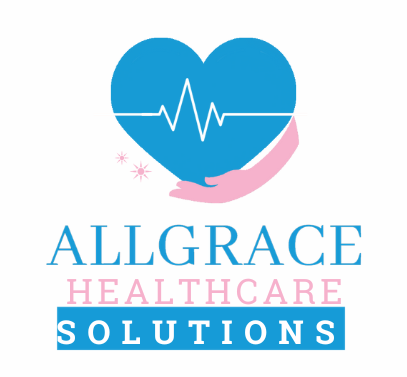As our parents age, it becomes increasingly important to educate them on health management. Aging brings about physical and mental changes that can impact their overall well-being and quality of life. By understanding their unique health needs and providing them with the necessary knowledge and support, we can help them navigate the challenges of aging and ensure they receive the care they need. In this article, we will explore various aspects of educating elderly parents on health management, including understanding their health needs, starting the conversation, the role of caregivers, common health issues faced by elderly parents, the benefits of regular health checkups, promoting a healthy lifestyle, medication management, navigating healthcare systems, and the role of technology in supporting their health management.
Key Takeaways
- Educating elderly parents on health management is crucial for their overall well-being and quality of life.
- Understanding the unique health needs of elderly parents is essential for effective health management.
- Starting the conversation about health management with elderly parents can be challenging, but it is necessary.
- Caregivers play a vital role in educating elderly parents on health management and providing support.
- Common health issues faced by elderly parents can be managed with proper care and attention, including regular health checkups and medication management.
Understanding the Unique Health Needs of Elderly Parents
As our parents age, they experience various physical and mental changes that can impact their health needs. Physically, they may experience a decline in strength, flexibility, and mobility. Chronic conditions such as arthritis, osteoporosis, and cardiovascular disease become more common. Mental changes can include memory loss, cognitive decline, and an increased risk of developing conditions like dementia or Alzheimer’s disease.
These changes in physical and mental health require special attention and care. Elderly parents may need assistance with daily activities such as bathing, dressing, or meal preparation. They may also require regular medical check-ups to monitor their chronic conditions or to detect any new health issues that may arise. Understanding these unique health needs is crucial in providing appropriate care and support.
Tips for Starting the Conversation about Health Management with Elderly Parents
Starting a conversation about health management with elderly parents can be challenging. They may be resistant or reluctant to discuss their health or may not want to burden their children with their concerns. However, it is important to initiate these conversations to ensure their well-being.
One way to start the conversation is by expressing concern for their well-being and asking open-ended questions about how they are feeling. For example, you could say, “I’ve noticed that you seem to be having difficulty with your mobility lately. How are you feeling?” This approach allows them to share their concerns and opens the door for further discussion.
If your parents are resistant or reluctant to discuss their health, it may be helpful to involve other family members or trusted individuals, such as their doctor or a close friend. Sometimes, hearing concerns from someone other than their children can make them more receptive to discussing their health.
The Role of Caregivers in Educating Elderly Parents on Health Management
Caregivers play a crucial role in educating elderly parents on health management. They are often the ones who provide direct care and support, ensuring that their parents’ health needs are met. Caregivers may assist with medication management, accompany their parents to medical appointments, and help them navigate the healthcare system.
However, caregivers also face challenges in educating elderly parents. They may encounter resistance or reluctance from their parents, who may not want to accept help or acknowledge their health issues. Caregivers may also experience burnout or feel overwhelmed by the responsibilities of caregiving.
To overcome these challenges, caregivers can approach the role with empathy and understanding. It is important to listen to their parents’ concerns and respect their autonomy while providing necessary support. Caregivers should also prioritize self-care and seek support from other family members or support groups to prevent burnout.
Common Health Issues Faced by Elderly Parents and How to Manage Them
Elderly parents often face common health issues that require careful management. Some of these include chronic conditions like diabetes, hypertension, and arthritis. Others may experience cognitive decline or mental health issues such as depression or anxiety.
Managing these health issues requires a multi-faceted approach. It is important to ensure that elderly parents receive regular medical check-ups to monitor their conditions and adjust treatment plans as needed. Medication management is also crucial, as elderly parents may be taking multiple medications that need to be taken at specific times and dosages.
In addition to medical management, lifestyle modifications can also play a significant role in managing health issues. Encouraging a healthy diet, regular exercise, and stress management techniques can help improve overall well-being and reduce the risk of complications.
The Benefits of Regular Health Checkups for Elderly Parents

Regular health checkups are essential for elderly parents to monitor their health and detect any potential issues early on. These checkups allow healthcare professionals to assess their overall well-being, screen for common age-related conditions, and provide appropriate interventions or treatments.
Early detection is particularly important in elderly parents, as they may be at a higher risk for certain conditions such as cancer or cardiovascular disease. Regular checkups can help identify these conditions in their early stages when they are more treatable.
In addition to detecting health issues, regular checkups also provide an opportunity for healthcare professionals to review medications, discuss any concerns or symptoms, and provide guidance on managing chronic conditions. These checkups can help ensure that elderly parents receive the necessary care and support to maintain their health and well-being.
Strategies for Encouraging Elderly Parents to Adopt a Healthy Lifestyle
Encouraging elderly parents to adopt a healthy lifestyle can be challenging, especially if they have long-established habits or resistance to change. However, promoting healthy habits is crucial in maintaining their overall well-being and preventing the onset of chronic conditions.
One strategy is to lead by example. By adopting healthy habits yourself, such as eating nutritious meals or engaging in regular exercise, you can inspire your parents to do the same. You can also involve them in activities that promote physical and mental well-being, such as going for walks together or participating in hobbies they enjoy.
It is important to approach these conversations with empathy and understanding. Understand that change can be difficult, especially for elderly parents who may have limited mobility or other health challenges. Start small and focus on achievable goals, such as incorporating more fruits and vegetables into their diet or engaging in light physical activity.
The Importance of Medication Management for Elderly Parents
Medication management is crucial for elderly parents, as they may be taking multiple medications to manage chronic conditions. However, medication mismanagement is a common issue among the elderly and can lead to adverse effects or complications.
To ensure proper medication management, it is important to establish a system that helps elderly parents keep track of their medications. This can include using pill organizers or setting reminders on their phones or other devices. It is also important to involve healthcare professionals in the process, ensuring that medications are reviewed regularly and adjusted as needed.
Family members or caregivers can also play a role in medication management by assisting with medication organization and administration. However, it is important to respect the autonomy of elderly parents and involve them in the decision-making process.
How to Navigate Health Insurance and Healthcare Systems for Elderly Parents
Navigating the healthcare system and understanding health insurance options can be complex, especially for elderly parents who may have limited experience or knowledge in this area. However, it is important to ensure that they have access to the necessary healthcare services and resources.
One strategy is to educate yourself about the healthcare system and health insurance options available to elderly parents. This can include researching Medicare or Medicaid programs, understanding coverage options, and knowing how to navigate the system effectively.
It may also be helpful to seek assistance from healthcare professionals or social workers who specialize in elder care. They can provide guidance on available resources, help with paperwork or applications, and advocate for your parents’ needs.
The Role of Technology in Supporting Elderly Parents’ Health Management
Technology can play a significant role in supporting elderly parents’ health management. There are various devices and applications available that can help monitor health conditions, track medication schedules, and provide reminders for appointments or activities.
For example, wearable devices like fitness trackers can help monitor physical activity levels and provide motivation for staying active. Medication reminder apps can help ensure that medications are taken on time and in the correct dosage. Telehealth services can also provide access to healthcare professionals remotely, reducing the need for in-person visits.
However, it is important to consider the challenges that elderly parents may face in using technology. They may have limited experience or knowledge in using devices or applications, and may require assistance or training. It is important to provide patient and supportive guidance to help them navigate these technologies effectively.
Educating elderly parents on health management is crucial in ensuring their well-being and quality of life. By understanding their unique health needs, starting the conversation about health management, supporting caregivers, managing common health issues, promoting regular checkups, encouraging a healthy lifestyle, managing medications, navigating healthcare systems, and utilizing technology effectively, we can provide the necessary care and support for our aging parents. It is important to approach these discussions and interventions with empathy, understanding, and patience, ensuring that our parents receive the care they deserve as they navigate the challenges of aging.
If you’re looking for more information on how to educate elderly parents on managing their health, you may find this article on fall prevention for adults at home helpful. It provides a comprehensive guide for caregivers on how to create a safe environment and reduce the risk of falls. Falls are a common concern among older adults, and taking proactive measures can greatly improve their overall well-being. To learn more about fall prevention, check out the article here. Additionally, if you’re interested in understanding the growing problem of drug resistance in diseases like tuberculosis, gonorrhea, and pneumonia, this article offers valuable insights. It explores the challenges faced by healthcare professionals and the importance of finding effective solutions. To read more about drug resistance, visit here. For any further inquiries or assistance, feel free to reach out to us through our contact page here.






0 Comments